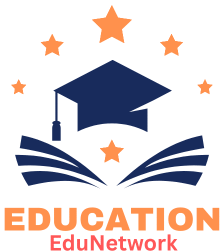There has been a rise in demand for experts who can help institutions navigate the rapidly evolving landscape of higher education and help them seize new opportunities as they arise. Consulting roles at academic institutions are helpful in this regard. If you are seeking a profession that combines strategy, innovation, and education, you may want to consider roles in higher education consulting. This article will provide a comprehensive overview of higher education consulting roles, including what they include, the skills and experience required, possible career paths, and entry-level resources.
Consulting Positions at Academic Institutions: What Are They?
Those working as consultants in the field of higher education often advise and guide various educational institutions in their strategic planning and decision-making processes. Experts in the field of education advise schools on how to increase enrollment, fortify course options, and streamline operations so that they can adapt to a dynamic school climate.
Curriculum development, technology integration, student recruitment, budgeting, accreditation processes, and institutional research are just a few areas where consultants might focus. To be successful in these roles, you need to be able to analyze problems, understand education, and come up with solutions tailored to the needs of academic institutions.
Just How Many People Are Looking for Consulting Jobs in the Field of Higher Education?
Among the several challenges confronting the higher education sector today are declining enrollment, increasing competition, tighter budgets, and the need to incorporate technology into the classroom. It is common for institutions to be underequipped and uninformed when it comes to dealing with such complex issues. Consultants with the ability to provide:
-
Data-driven insights
-
Making long-term plans
-
Improvements to procedures
-
Encouraging adherence to regulations
-
Help with the transition to digital
are in high demand as a result of this gap.
Forecasts indicate that the global education consulting industry will grow at a steady clip, which is great news for those employed in this field.
Consulting Roles in the Academic Sector
Higher education consulting roles may vary substantially depending on the employer and the consultant’s area of specialty. Some common positions include:
-
Consultant for Academic Programs
Places an emphasis on accrediting schools, improving academic standards, and creating curricula. They work together with faculty and administration to ensure that programs meet the needs of both students and businesses. -
Enrollment Management Experts
Help institutions with marketing, recruitment, and optimizing financial assistance to attract and retain students. -
Operational and Financial Advisor
Assesses administrative operations, financial data, and budgets to provide methods for cost reduction and productivity enhancement. -
Technology Integration Consultant
Describes best practices for implementing various forms of educational technology, such as online pedagogical resources, learning management systems, and data analytics tools. -
Analyst of Institutional Research
Investigates market trends, program effectiveness, and student outcomes for the purpose of informing policy and decision-making.
Important Skills for Academic Consulting
Success in higher education consulting requires a blend of skills:
-
Analytical Thinking: The ability to take in data, process it, and draw meaningful conclusions.
-
Communication Skills: Capable of conveying complex ideas clearly and concisely in writing and speech.
-
Problem-Solving: Using one’s imagination to come up with fresh solutions to long-standing institutional issues.
-
Project Management: The ability to keep track of several tasks and ensure they are completed by the due date.
-
Educational Competence: Mastery of policies, practices, and accreditation standards in the field of higher learning.
-
Interpersonal Competencies: Building rapport with a wide variety of people, including administrators, students, and instructors.
Credentials and Academic History
While many employers prefer candidates with doctoral or master’s degrees in fields like public policy, education, or business administration, a bachelor’s degree is still required for most consulting roles in higher education. Work experience in academia, consulting, or administration could be quite useful.
Earning credentials in data analytics, project management (like PMP), or certain academic disciplines may help boost your reputation.
Finding a Job in Higher Education Consulting: A Guide
-
Utilize Online Employment Boards and Career-Oriented Websites
Famous employment platforms like Indeed, Glassdoor, and LinkedIn, as well as niche education job boards, often post openings for higher education consultants. -
Form Networks Within the Industry
Attend professional events hosted by groups like the American Council on Education (ACE) or the Association for the Study of Higher Education (ASHE), as well as webinars and conferences. -
Join Education-Focused Consulting Firms
The Advisory Board Company, Eduventures, and EAB are just a few examples of consulting businesses that have education as their exclusive emphasis. Consultant roles at academic institutions may be available by direct application to these firms. -
Research Contract or Freelance Jobs
As a first step in building their careers, many consultants take on contract work or work as independent contractors.
Goals for Career Advancement and Compensation
Consulting roles in higher education might pay more or less depending on the candidate’s experience, location, and field of specialization. Consultants at the entry level may expect to make $50,000 to $70,000 a year, while managers and senior consultants can make up to $100,000. Independent consultants may charge extra, depending on their expertise and the kind of clients they work with.
Being a senior consultant, managing projects, or rising to a leadership position in a consulting firm or academic institution are all viable options for those looking to further their careers.
Challenges Faced by Those Seeking Higher Education Consulting Jobs
Consulting in higher education may be profitable, but it also comes with certain drawbacks:
-
Maneuvering through complex institutional politics and bureaucracy.
-
Staying abreast with the rapid changes occurring in educational policy and technological advancements.
-
Satisfying the needs of a wide range of interested parties.
-
Managing stringent deadlines and project handovers.
But, professionals that are proactive, well-informed, and adaptable have a better chance of succeeding in this dynamic field.
Tips for Succeeding in Higher Education Consulting Positions
-
Remain Active: Stay abreast on the latest trends, regulations, and technological advancements in the world of higher education.
-
Build an Impressive Portfolio: Document your impact via case studies and noteworthy accomplishments.
-
Hone Soft Skills: Empathy, active listening, and negotiating are key to working well with clients.
-
Find a Mentor: Learn from experienced academic leaders or consultants.
-
Invest in Networking: New consulting and joint venture opportunities might arise from existing contacts.
The Future of Consulting in Higher Education: Future Work Opportunities
It would seem that consulting roles inside universities are here to stay. As educational institutions face the triple threat of student demographic shifts, technological advancements, and globalization, the need for seasoned consultants is likely to rise.
Emerging disciplines like online learning, educational sustainability, diversity and inclusion initiatives, and AI integration are increasingly giving rise to new consulting specializations. Experts that can think outside the box and adapt quickly to new circumstances will be highly sought after.
In Conclusion
Consulting roles in higher education provide a unique and meaningful career path for those who are passionate about improving educational institutions. Whether you’re interested in technology, managing finances, enrollment methods, or creating academic programs, this industry offers various alternatives.
Aggressive networking, relevant experience, and skill sharpening may place you in a strong position to succeed in this fast-paced field. If you are ready to make a difference in higher education and like challenging and rewarding work, then looking into higher education consulting roles is definitely a good idea.
